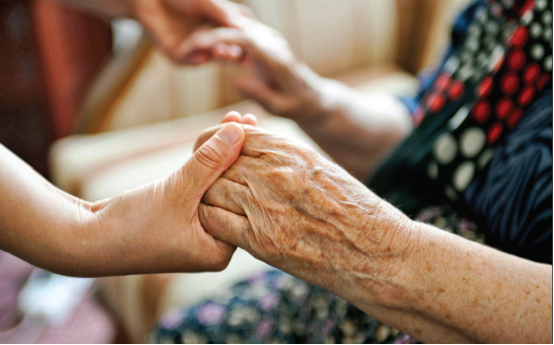Beating Lung Cancer in Ohio (BLCIO)
About 10,000 patients are diagnosed annually with lung cancer in Ohio, which is the leading cause (15% of all cases) of cancer-related death in the state (27% of all deaths). The lung cancer incidence rate per 100,000 in Ohio is 63.8 whereas that for the US is substantially lower at 56.1. In absolute numbers, an average of 7,500 persons/yr. are diagnosed with advanced lung cancer. Previously, survival for those with advanced disease was 10-12 months for those in clinical trials and 4-6 months in the general population. However, newer targeted therapies and immunotherapies have revolutionized treatment with survival for many exceeding two years. With OSU Pelotonia funding, the Ohio State University Comprehensive Cancer Center (OSUCCC) established the Beating Lung Cancer Study - In Ohio (BLCIO; PI: P. Shields) to intensively study over 2000 Ohioans diagnosed with advanced (Stage IV) non-small cell lung cancer (NSCLC).
Patients are accrued at the time of diagnosis and followed for 2+ years, with monthly assessments including stress, depressive and anxiety symptoms, illness perceptions, symptom reports and others (see Andersen et al., 2019, Lung Cancer; Lo et al., 2019, Journal of Cancer Rehabilitation). Cohort study is enriched with genetic testing and continuous medical record abstraction. The overall objective of BLCIO is to increase the survival of lung cancer patients and improve their quality of life, using two linked randomized trials focused on improving lung cancer treatment and smoking cessation. An important component is to determine the impact of quality of life through the life course of a patient who transitions from one therapy to another.
In order to study the effects of the SARS COVID-19 virus on Ohio residents suffering from cancer, non-cancer controls were accrued from various sources, including web-based ResearchMatch and CloudResearch platforms to serve as comparison against patients with cancer. We hope to contribute to the growing body of knowledge of how the 2020-2021 global pandemic impacted vulnerable populations.
Treating Depression and Anxiety in Patients with Lung Cancer: The ABC Study
Depression and anxiety are common among people with cancer. The ABC study is an online or live program for people feeling depressed, anxious or just stressed out by cancer. The program helps people with cancer manage stress, relax, communicate, and problem-solve. The program teaches short-term ways to cope with depression and long-term life skills that will help people with cancer face the future with confidence. The program provides information on how to overcome negative thoughts—even if these thoughts have been around for a long time.
The program includes 10-14 weekly sessions that take about an hour each and provides patients with a personal therapist, for sessions personalized to each patient. ABC is interactive and helps patients learn ways to adjust their behaviors and improve their mood. Is completely confidential and free of charge This research study will evaluate the efficacy of the ABC treatment to reduce psychological symptoms for patients with advanced lung cancer with moderate/severe depressive symptoms. This study will also establish the acceptability and suitability of the intervention, in order to identify efficiencies to achieve clinical change. The trial principal investigator (PI) is Nicole Arrato, clinical psychology (health) doctoral student funded by The Ohio State University Graduate School. Additional funds for the research come from the AGGRS award.


This page is maintained by the Arts and Sciences Technology Group. For technical help please email asctech@osu.edu
© 2015 Stress and Immunity Cancer Projects. All Rights Reserved. 159 Psychology Building 1835 Neil Avenue Columbus, OH 43210 P: 614.292.8429